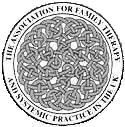John Rolland's Family Systems-Illness Model

The model can be helpful in understanding the complexity of supporting a child with serious illnesses, and the wider family impact
Dr Liz Forbat
Dr Liz Forbat is a research psychologist and family therapist, specialising in ill-health. She works at the University of Stirling, focusing her research and clinical activities on people affected by cancer and other life-threatening and life-limiting conditions. She is currently leading a UK-wide study documenting the symptom profile and family experiences of children affected by rare conditions, namely Batten disease and Mucopolysaccharidoses.
She writes -
When a child is diagnosed with a serious illness or disability this can have a powerful and long-lasting impact on family life. John Rolland's Family Systems-Illness Model provides a psychosocial map to help families navigate the changing landscape in the experience of illness and disability over time.
His approach integrates the psychosocial demands of a range of illnesses and their phases, with family and individual lifecycle challenges (such as older children reaching adolescence and leaving home), multigenerational legacies (ways of thinking about illness which are handed down from one generation to the next within families), and beliefs (such as views on the cause of the illness). The model can be helpful in understanding the complexity of supporting a child with serious illnesses, and the wider family impact.
Rolland's work helps with a range of concerns that families bring, for example, communication issues, maintaining relationships in the face of caregiving demands and threatened loss, and destructive 'illness narratives'. He advocates a range of approaches, appropriate to the child and family's situation. For example, preventive family consultations, psychosocial check-ups, brief interventions, or psycho-educational multi-family groups.
A family-based intervention would consider the different points in the illness trajectory (at point of diagnosis, during relapse or in a palliative phase), and the consequent impact on how the family is able to function and the differing demands on each person.
Because the model is 'systemic' it is inherently attuned to thinking about how the child's support networks are connected. The multi-agency approach advocated by TAC therefore fits snugly with the systemic illness model in thinking about illness as experienced through wider family and relational systems, not just by the child with the diagnosis.
Readers interested in learning more
Readers interested in learning more about the model might be interested in the following paper:Rolland, J.S., & Walsh, F. W. (2006). Facilitating family resilience with childhood illness and disability. Current Opinion in Pediatrics, 18: 527-538.

